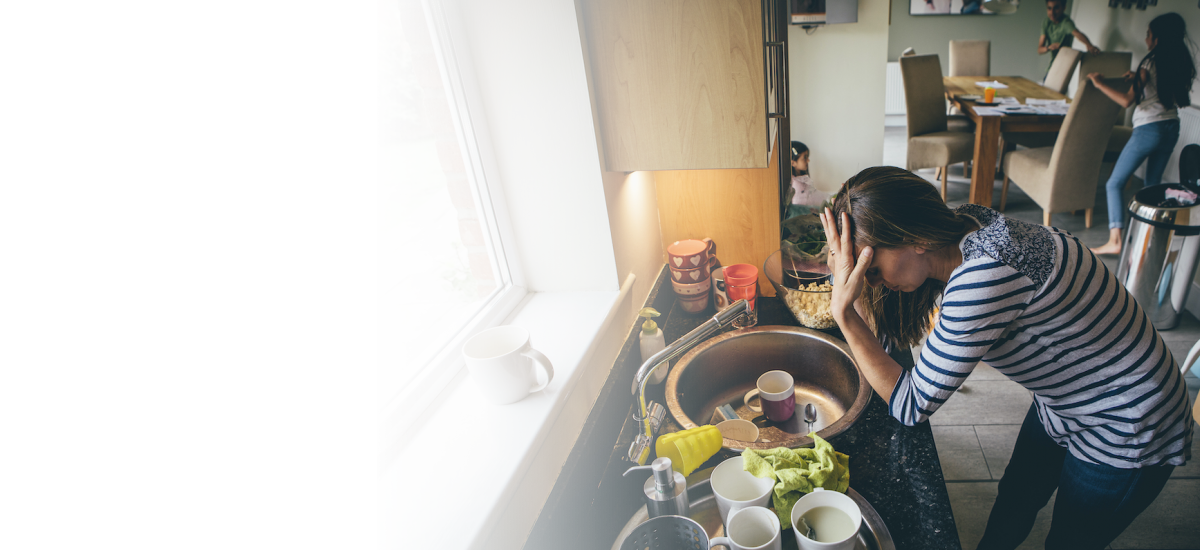It was Mental Health Awareness week last week; 18th – 24th May 2020. The purpose of the week was to,
raise awareness of mental health and mental health problems and to inspire action to promote the message of good mental health for all.
– Mental Health Awareness week 2020
Mental health awareness week has been run by the Mental Health Foundation (MHF) since 2001. In 2018 the MHF conducted a study on the impact of stress involving 4619 respondents. The results, available on the MHF website, suggest that in the year preceding their report, 70% of ‘older’ responders had felt overwhelmed and unable to cope. In the young adult population, the figure was, alarmingly, greater than 90%!
As a clinic tutor at the University College of Osteopathy (UCO), I work with a lot of young adult students on their journey toward becoming Osteopaths and a number of my work colleagues are a lot younger than me. The MHF figures, if accurate, would suggest that a high proportion of the people I spend my working life with are likely to be struggling with their mental health as a result of stress at any given time. That was a bit of a wakeup call for me as it isn’t the sort of thing that would normally cross my mind on a day to day basis but perhaps it should. Are we as vulnerable as those figures suggest?
My own experience of the week before Mental Health Awareness week would suggest that, while I think I am quite resilient, I am also vulnerable and it really doesn’t take much to tip the balance. I’d been having a busier week than usual with UCO related work and I’d had a couple of other personal matters to attend to. Nothing unusual or too onerous. Then, two unexpected things happened. The weather became suddenly colder and the kitchen sink stopped draining which also meant we couldn’t use the dishwasher. We actually have two sinks in our kitchen so it really shouldn’t have been that much of a problem. We, my family and I, could have coped quite easily with a little adaptation, but the sudden changes threw me! I didn’t sleep well that night. I was ruminating about trying to fix the sink myself or whether to call someone to come and help. But who? Would a plumber be available during lockdown? I woke the next morning still feeling tired. I was short-tempered, irritable and I couldn’t relax or concentrate. I tried all the things I could think of to fix the drain myself but realised, frustratingly and begrudgingly, that it was beyond my capabilities and I would definitely need a plumber. By then, I noticed myself having catastrophic thoughts like ‘what if nobody is willing to come out during lockdown’ and ‘we’ll be without a fully functioning kitchen for months to come’. According to the MHF research, these are signs of feeling overwhelmed. A friend, who happens to be a plumber was willing to come out during lockdown and help us if we could wait a day or two. He would need access to the blocked pipe which is underneath the kitchen floor so before he arrived, we – the family – would have to tackle the filthy job we’d been putting off for years of clearing the junk we’d accumulated in the cellar. My plumber friend came two days later and two problems were now solved and the feeling of relief was immense.
I fully appreciate that I am extremely fortunate. I have a supportive and loving family, and some excellent friends. My problems, if they were problems at all, were very, very minor and easily solved in retrospect. The point of this piece is to suggest that it is combinations of circumstances in people’s lives that act as stressors and additional, sometimes, small events that can tip the balance toward mental ill-health. For many, the impact of stress, not least during this COVID 19 lockdown, can be far-reaching and life-changing.
In the UK, calls to Refuge, a charity providing specialist support to women and children experiencing domestic violence, have increased by 700%. The Telegraph, on May 7th 2020, published the World Health Organisation’s warning that lockdown stress and anxiety has led to a spike in domestic abuse across Europe. The Office for National Statistics in the UK report a 31.4% increase in alcohol sales during the lockdown period. Alcohol (Finlay and Gilmore, 2020), and psychological stress (Yim and Kofman, 2019) are strongly associated with domestic violence.
This year’s Mental Health Awareness Week theme was kindness. Kindness to others certainly but, more importantly, to ourselves. “Self- compassion begins with the intention of wholehearted kindness towards ourselves, not as a tool to manipulate our emotions to feel better in the moment; not as a means or to fix our pain. When we struggle, we practice self-compassion not to feel better, but because we feel bad.” Mental Health Awareness week has been successful in raising my awareness of stress and its capacity to impact on people’s mental health. Not just my own, but my family’s, my friends and, especially, on the many UCO students I work with and my tutor colleagues. I will be endeavouring to extend kindness to them all, and myself in the future.
Further Reading and References
Yim, I.S., Kofman, Y.B., 2019. The psychobiology of stress and intimate partner violence. Psychoneuroendocrinology, Festschrift for Dirk Hellhammer 105, 9–24.
Finlay, I., Gilmore, I., 2020. Covid-19 and alcohol—a dangerous cocktail. BMJ 369.
Be Kind to Yourself [WWW Document], n.d. . Psychology Today. URL (accessed 5.25.20). Chris Germer – Clinical Psychologist

